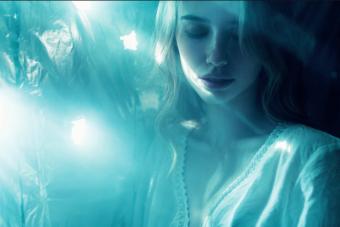
Scientists are not sure why dreams happen. They are a sequence of images that often include feelings and sounds. They can be very vivid. People have wanted to know why dreams happen throughout time, as is evident in historical findings. People have such a fascination with dreams that the study of dreams, called oneirology, is quite popular.
Theories on Dreaming
Through the years there have been many theories on why people dream. This somewhat mysterious subject has always been on the forefront of speculation. Many researchers and scientists have grappled with finding the actual reason for dreams, as well as the specific meanings of certain types of dreams.
Sigmund Freud was one of the early publishers of a theory about dreaming. Several of his contemporaries reflected on his theory, often adding their own concepts. Because of this, many theories on why people dream are often psychological explanations.
Sigmund Freud
Sigmund Freud (1856 to 1939) is considered the father of psychoanalysis. His theory reflected his opinion that dreams are a person's outlet for their subconscious thoughts and "hidden desires."
He felt that everything in a dream was the result of the dreamer's instincts and experiences. He believed that nothing was done by chance and that everything was motivated by the unconscious - what a dreamer does in their dreams was the way to act on those impulses and urges. He felt that the reason a dreamer cannot remember their dreams is because of the ego's goal to protect the conscious mind from the thoughts and desires of the unconscious mind.
Carl Jung
Carl Jung (1875 to 1960) was a student of Sigmund Freud but they did not agree on the cause of dreams. Carl Jung saw the unconscious mind as more spiritual. He believed that dreams were a window to the dreamer's unconscious and a way for the dreamer to solve problems they were facing in their waking life.
Alfred Adler
Alfred Adler (1870 to 1937) believed that dreams were problem solving devices - a way to gain control over thoughts from an individual's waking life. He was a major proponent of dream interpretation since he felt that bringing dreams to light would help the dreamer solve their problems.

He did not believe that the conscious and subconscious functioned in opposing ways and that, in fact, dreams were a way to see how peopple truly felt since they think the same way when they are asleep as when they are awake. All the actions taken in a dream could compensate for actions that the dreamer would not feel comfortable taking when they were awake.
Frederick Perls
Frederick Perls (1893 to 1970) was the founder of Gestalt therapy which seeks to fill emotional voids. The more the dreamer could understand the dream, the more they could fill their emotional voids. He believed in reenacting the dream so that the dreamer could role play each of the characters in the dream as a way to understand how everyone felt about each other.
Perception Theory
The Perception Theory of dreams is that a dream is a combination of an individual's perception combined with their imagination. For example, one person may look at a rose and think of its sweet fragrance while another person may look at the same rose and only consider the pain of getting pricked by one of the rose's thorns. According to the Perception Theory, these two people could have very different dreams about the same rose.

Medical Theories
During sleep, the brain moves through five stages of sleep continuously. The most vivid dreams take place during the rapid eye movement (REM) portion of the sleep cycle. During this time, the brain's activity is heightened and often nearly as active as in wakeful hours. Dreams during this time are the most likely to be remembered, especially if you are awakened during them. Dreams do happen during other portions of the sleep cycle, but are not as intense and are often dull in comparison.
Most people dream each night for a total of about two hours, but most dreams are not remembered. For most people, individual dreams only last a few minutes, just as the REM cycle only lasts a few minutes.
Scientists are unsure of where dreams originate in the brain, but many believe that several portions of the brain can contribute to dreams. Doctors don't know what the purpose of dreams has on the brain, but they do know there are changes in the brain during sleep. There are several biological theories on why people dream.
Random Noise Theory
Francis Crick and Graeme Mitchison, proposed that the purpose of dreaming is to remove undesirable interactions in the networks in the brain cells. Their theory is that throughout the day the brain's cells are likely to be disturbed either by the growth of the brain itself or by the modifications produced in the brain based on an individual's daily experiences. A dream lets the brain of the dreamer "unlearn" the changes from the day, providing a clearer channel in which the brain can function.
Virtual Reality Theory
J. Allan Hobson posits that dreaming occurs because the brain is biologically wired to create a virtual reality situation, much like the virtual reality machines. In this way, dreams allow people to prepare each night for reality by creating a virtual reality situation during sleep so they can be better prepared to face the day.
David Maurice and the Cornea
David Maurice might seem like an unlikely contributor to dream theory. As an ophthalmologist, he realized that the cornea needs to be oxygenated while the eyes are closed. The only way this happens is during REM sleep, which supports that dreaming has, in part, biological functions.
Why Do Certain Types of Dreams Occur?
The dreams people remember most are vivid dreams that either startle the dreamer, have strong emotions, or even scare people. These types of dreams occur for varying reasons.
Vivid Dreams and Physical Conditions
Vivid dreams can occur for people with certain physiological conditions, such as pregnancy. These dreams can be related to fears and anxieties associated with childbirth and child rearing.
Lucid Dreams and Other Dreaming States
Lucid dreams, remembering and actively participating in a dream, are thought to occur due to a different state of consciousness. Lucid dreams are between the meditative state and deep sleep. These also occur during REM sleep. However, lucid dreams could occur because during REM sleep, a variety of conscious and unconscious states could occur in conjunction with each other and produce certain types of sleep, such as lucid dreaming, sleep paralysis, and out of body experiences.
Nightmares
At one point or another, most people have nightmares. Nightmares are thought to occur for a variety of reasons. Some of these reasons are illness, trauma, and certain medications, such as certain types of nicotine patches and anti-depressants.
Recurring Dreams
Recurring dreams are thought to occur because of an underlying, unresolved emotional issue. Dr. Michael J. Breus feels that two of these emotional issues could be stress related, and fear and anxiety. People will remember these dreams night after night, and their meaning is subjective and dependent upon the dreamer's perception.

There Isn't One Answer
There isn't only one answer to the question of why people dream. People are a complex integration of emotional, mental, and physical aspects that define their existence. It is possible that most theories on dreaming describe, in part, why people dream.







